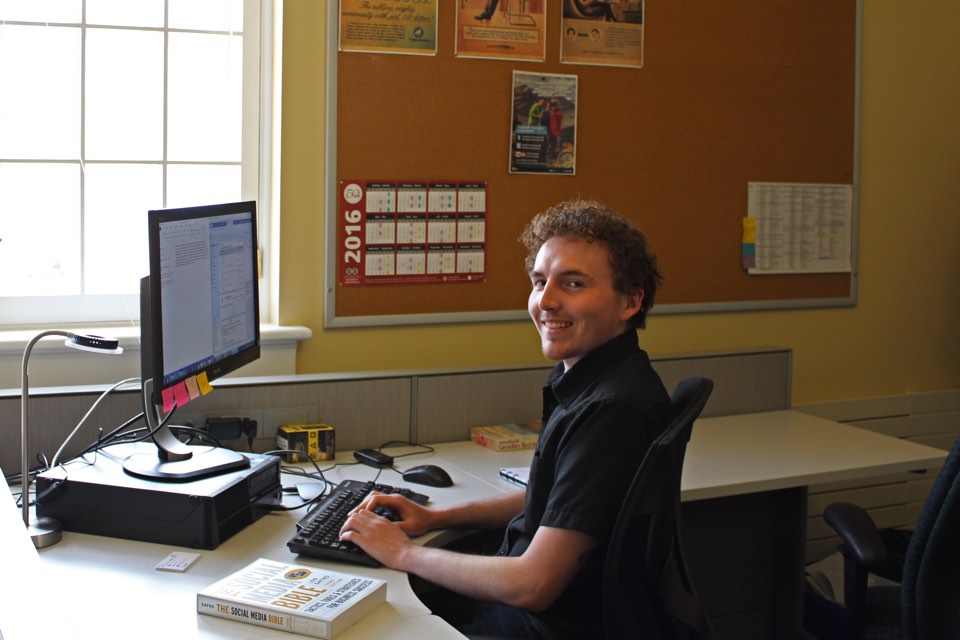Faculty of Arts
Arts Menu
-
- Master of Arts in Human Rights and Social Justice
- Bachelor of Arts
- Bachelor of Communication and Digital Journalism
- Bachelor of Interdisciplinary Studies
- Associate of Arts Degree
- Police and Justice Studies Diploma
- Emergency Communications Certificate
- Technical Theatre Certificate
- World Languages and Cultures Certificate
- Arts Cohort
-
- Communication and Visual Arts
- Environment, Culture and Society
- Literatures, Languages, and Performing Arts
- Philosophy, History and Politics
- Chair's Message
- History
- Degree Options
- Courses
- Student Success
- Awards and Scholarships
- Handbook for History Students
- Introduction - Handbook
- Why Study History?
- Varieties of History
- Historian's Work
- Pros, Amateurs and others
- Careers
- Libraries and Research
- Taking Notes
- Formulating a Topic
- Compiling a Bibliography
- Primary Sources
- Secondary Sources
- Need for Recent Sources
- Where to Start
- Note-taking
- Shape of the Essay
- Style of the Essay
- Checking the Essay
- Documentation
- Bibliographies and Footnotes
- Plagiarism
- Writing Essay Examinations
- Title Pages and Formatting
- Citation Generators
- Examples
- Citation Formatting
- History Links
- Philosophy
- Politics
- Our Faculty
- Contact Us
- Psychology
Section Menu
-
- Master of Arts in Human Rights and Social Justice
- Bachelor of Arts
- Bachelor of Communication and Digital Journalism
- Bachelor of Interdisciplinary Studies
- Associate of Arts Degree
- Police and Justice Studies Diploma
- Emergency Communications Certificate
- Technical Theatre Certificate
- World Languages and Cultures Certificate
- Arts Cohort
-
- Communication and Visual Arts
- Environment, Culture and Society
- Literatures, Languages, and Performing Arts
- Philosophy, History and Politics
- Chair's Message
- History
- Degree Options
- Courses
- Student Success
- Awards and Scholarships
- Handbook for History Students
- Introduction - Handbook
- Why Study History?
- Varieties of History
- Historian's Work
- Pros, Amateurs and others
- Careers
- Libraries and Research
- Taking Notes
- Formulating a Topic
- Compiling a Bibliography
- Primary Sources
- Secondary Sources
- Need for Recent Sources
- Where to Start
- Note-taking
- Shape of the Essay
- Style of the Essay
- Checking the Essay
- Documentation
- Bibliographies and Footnotes
- Plagiarism
- Writing Essay Examinations
- Title Pages and Formatting
- Citation Generators
- Examples
- Citation Formatting
- History Links
- Philosophy
- Politics
- Our Faculty
- Contact Us
- Psychology
Experiential Learning Opportunities
Students in the Bachelor of Communication and Digital Journalism are encouraged to take on opportunities to apply and develop their skills in the community and the workforce.

Martin McFarlane at his practicum placement with Parks Canada in Jasper, Alberta (Caroline Roy).
Through experiential learning, you get real-world experience in areas like writing and storytelling, video and audio production, social media content development, reporting, and many others. You also have the opportunity to connect with and support local businesses and organizations.
Experiential learning can take many forms, some more formal than others.
Co-op
You can gain work experience through TRU's co-op department. The university works with employers to set out defined work terms. Find out more about TRU's co-op program.
Experiential learning and practicum courses
You can take designated experiential learning or practicum courses in your third and fourth year of study. Working with the coordinator, you design a project or work experience to be completed with a community partner during the semester. These opportunities might include things like community radio, photography for events, or writing and promotional work for museums or other community groups. You can also bring existing work opportunities for consideration
Course work
Some courses may include opportunities for students to engage with and develop projects for a variety of community interest groups or businesses. Such projects might include web development, media kits or strategic analyses.

